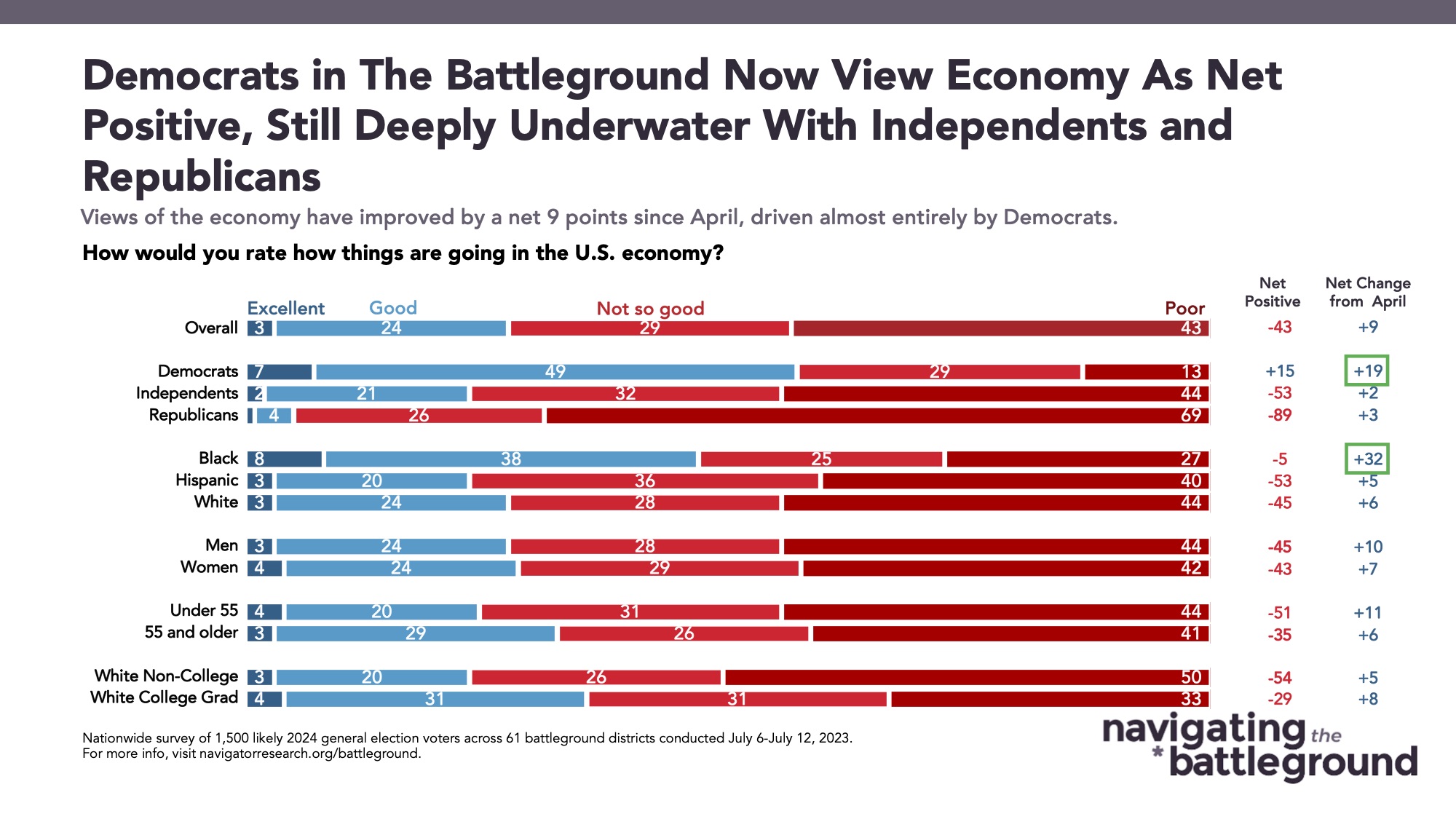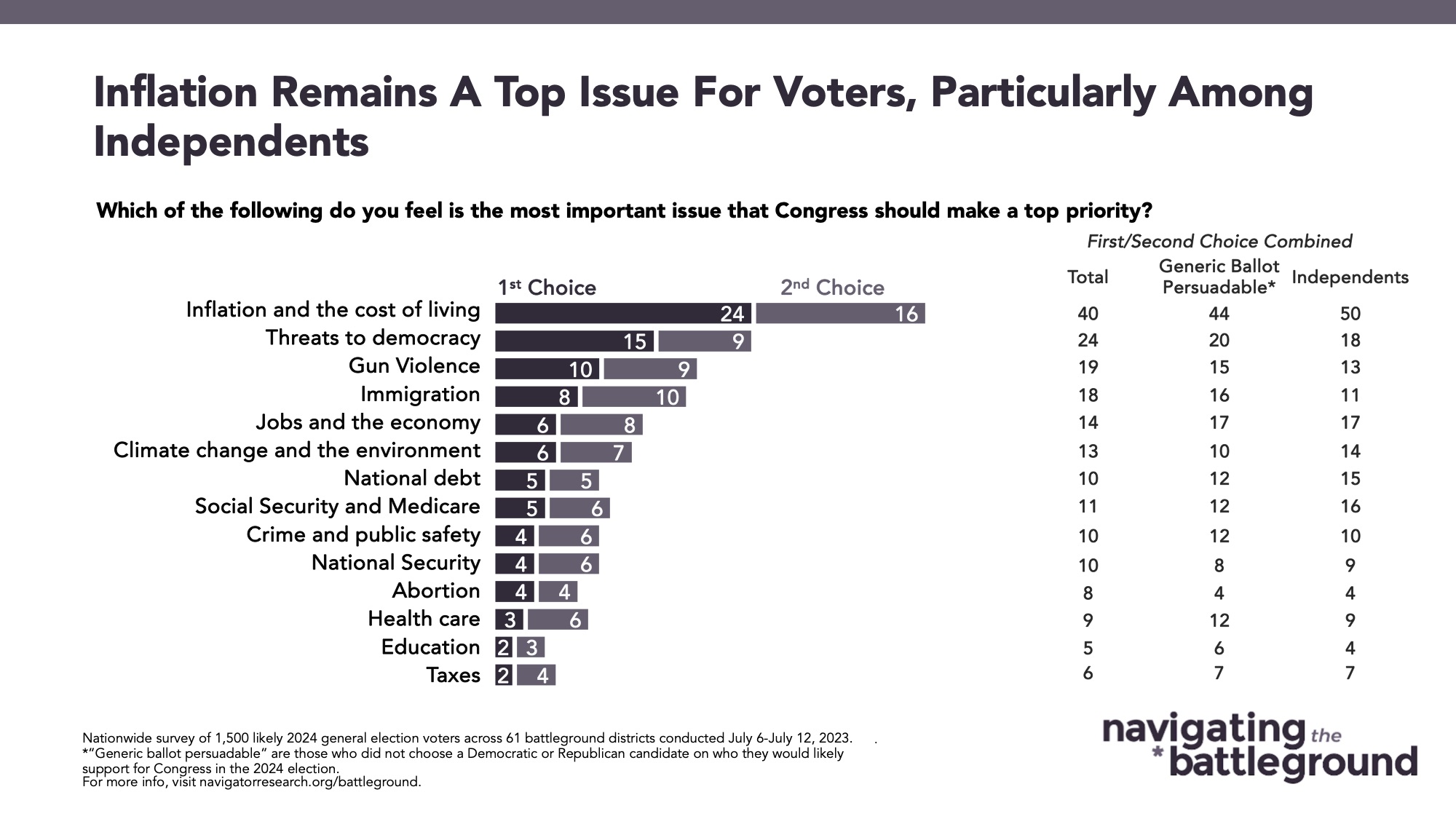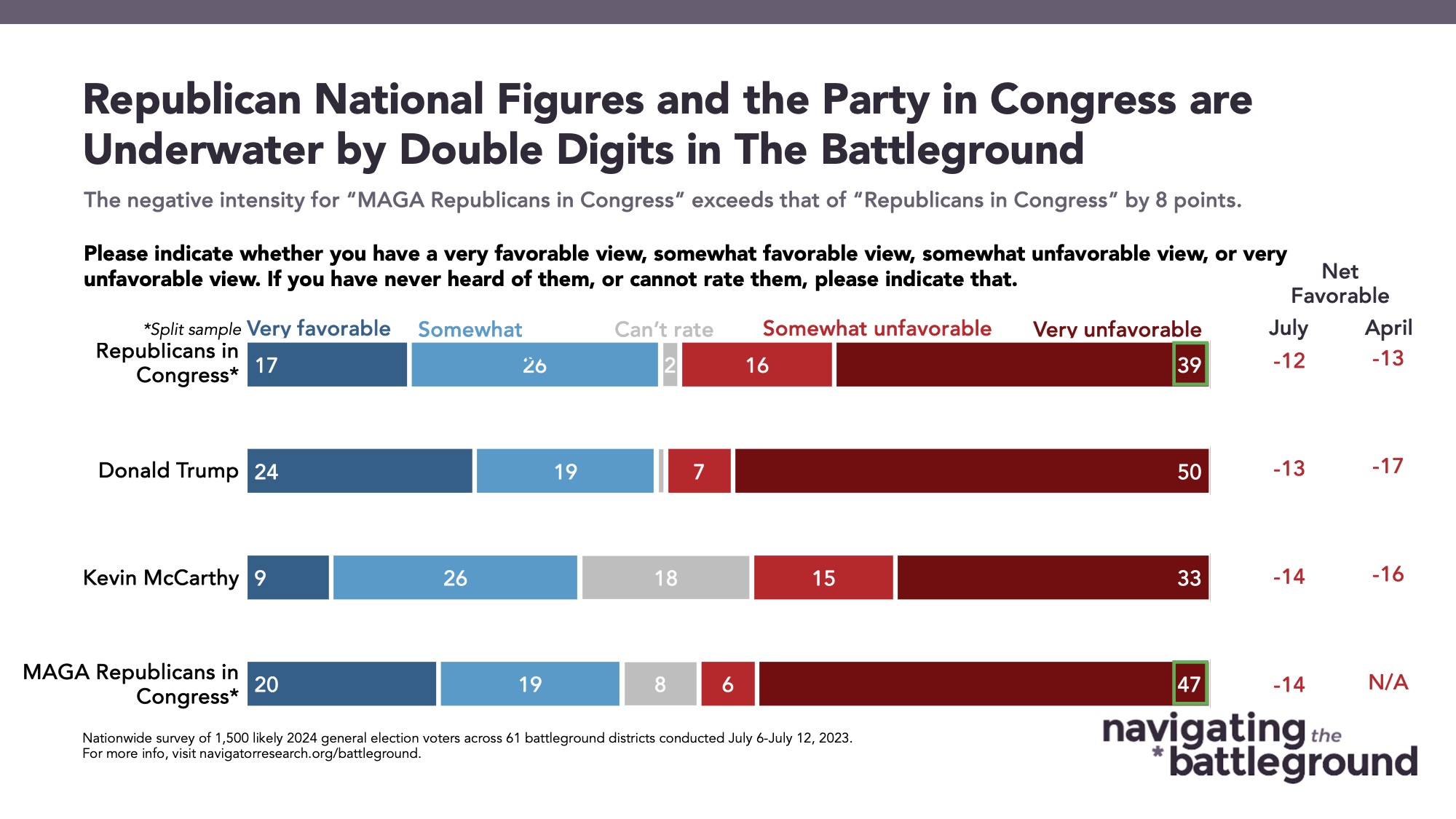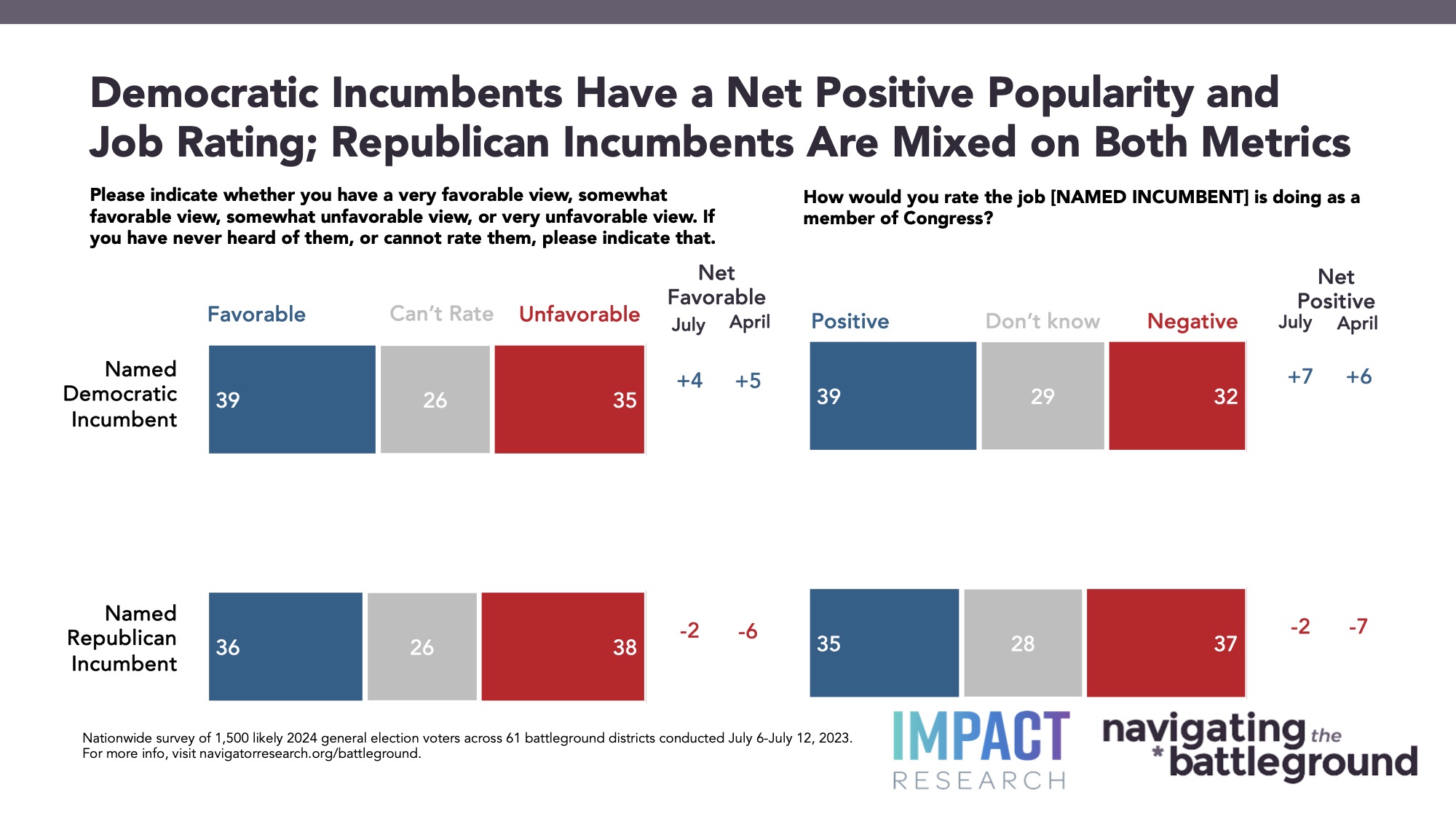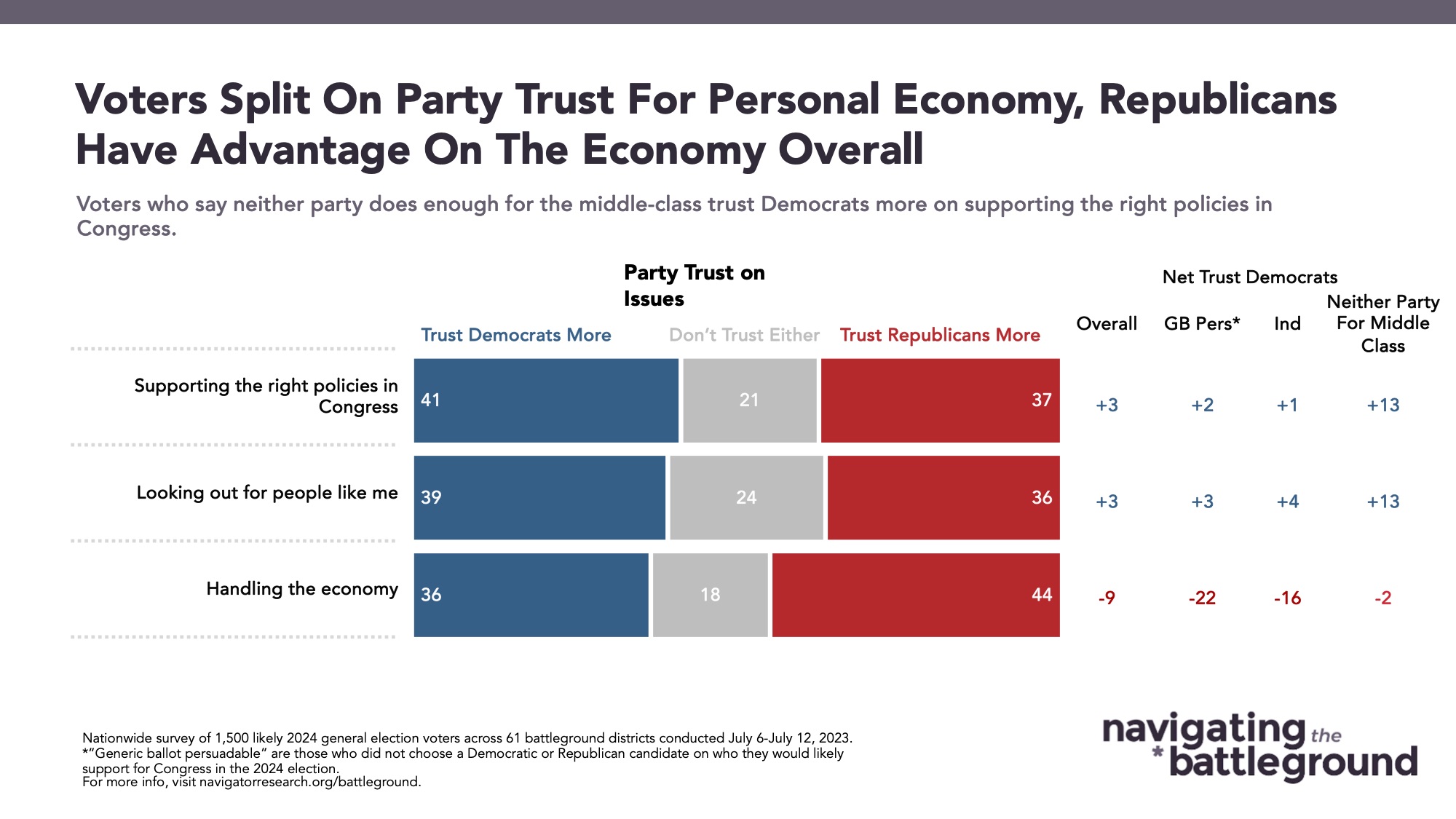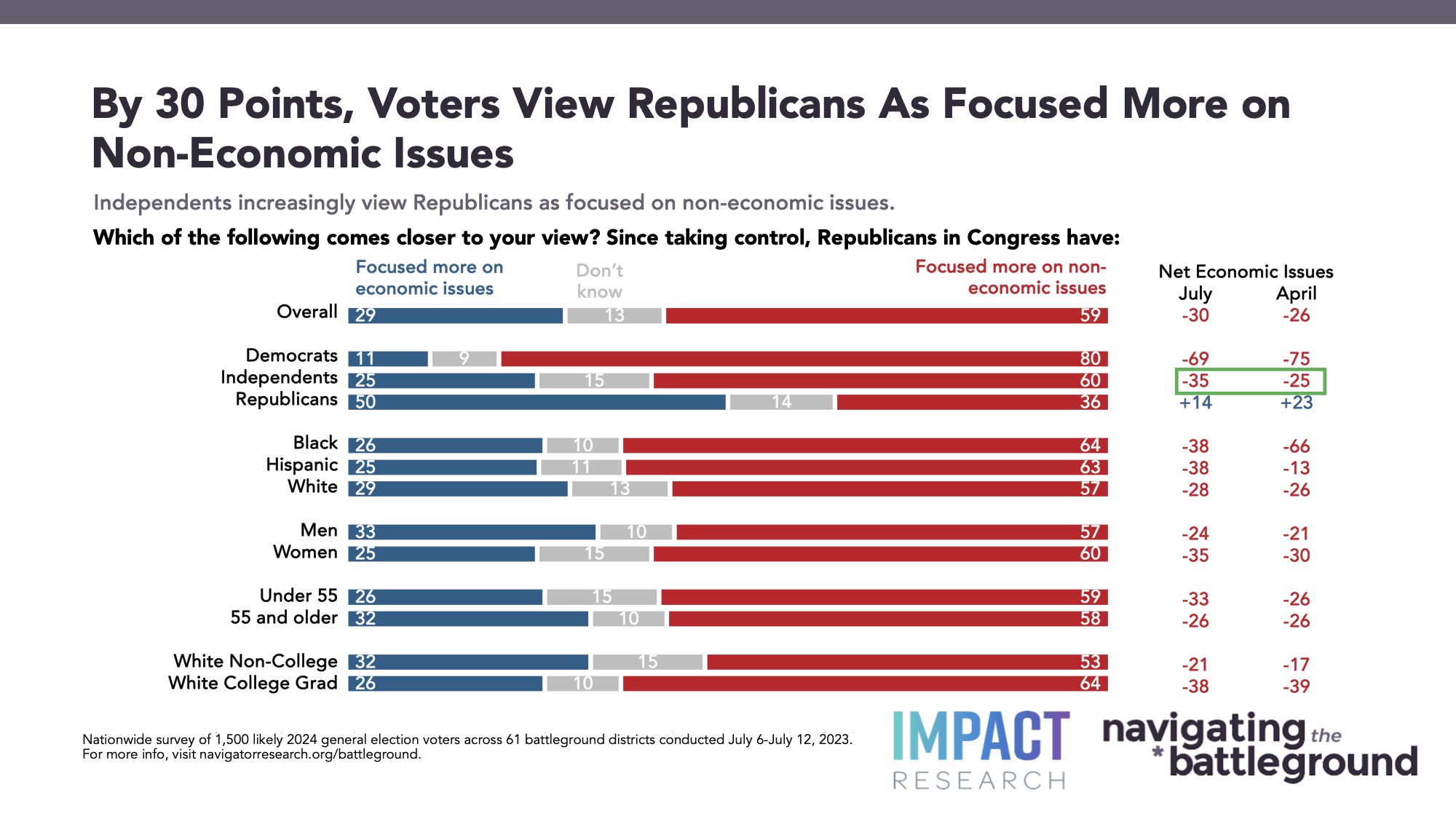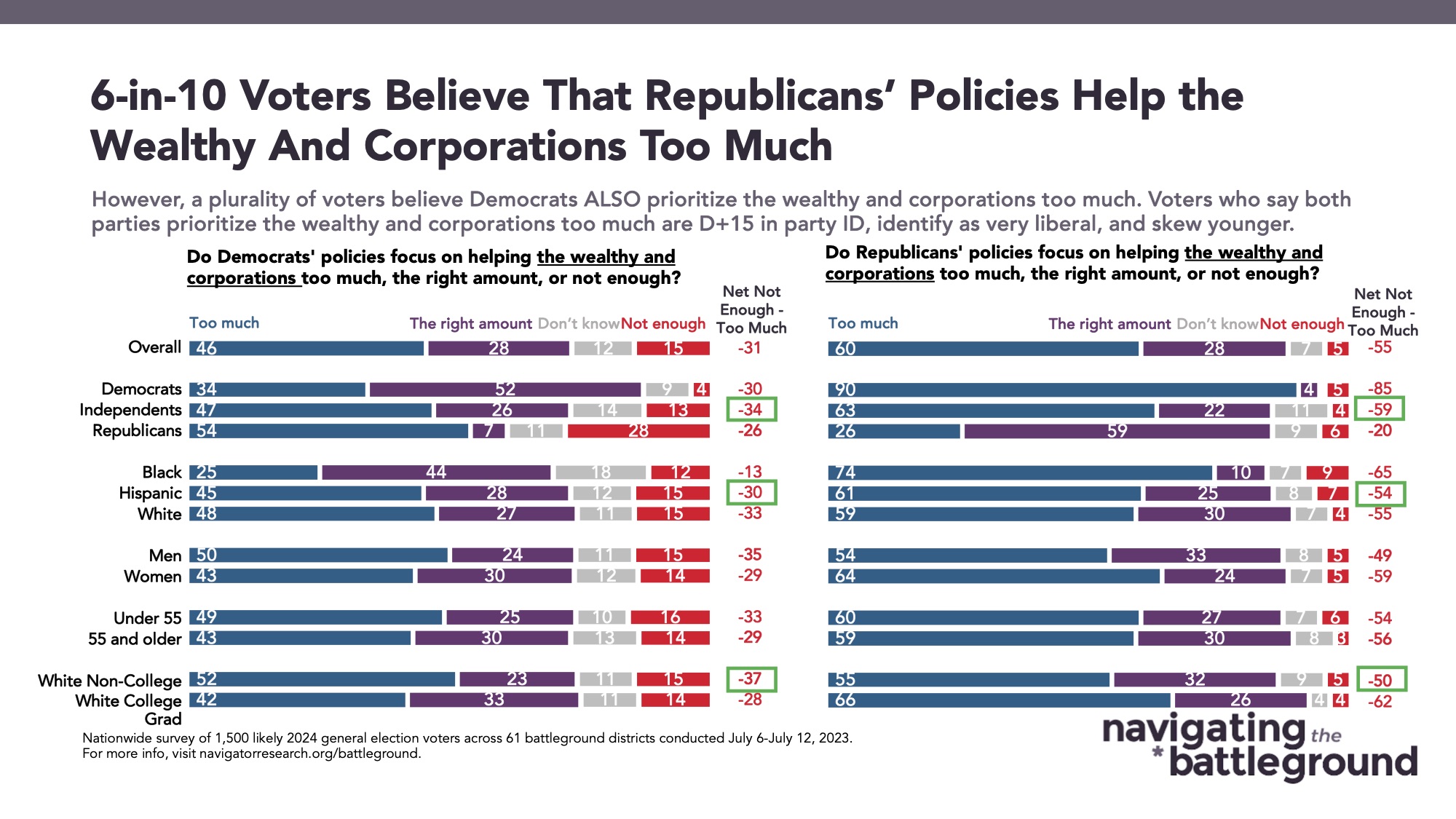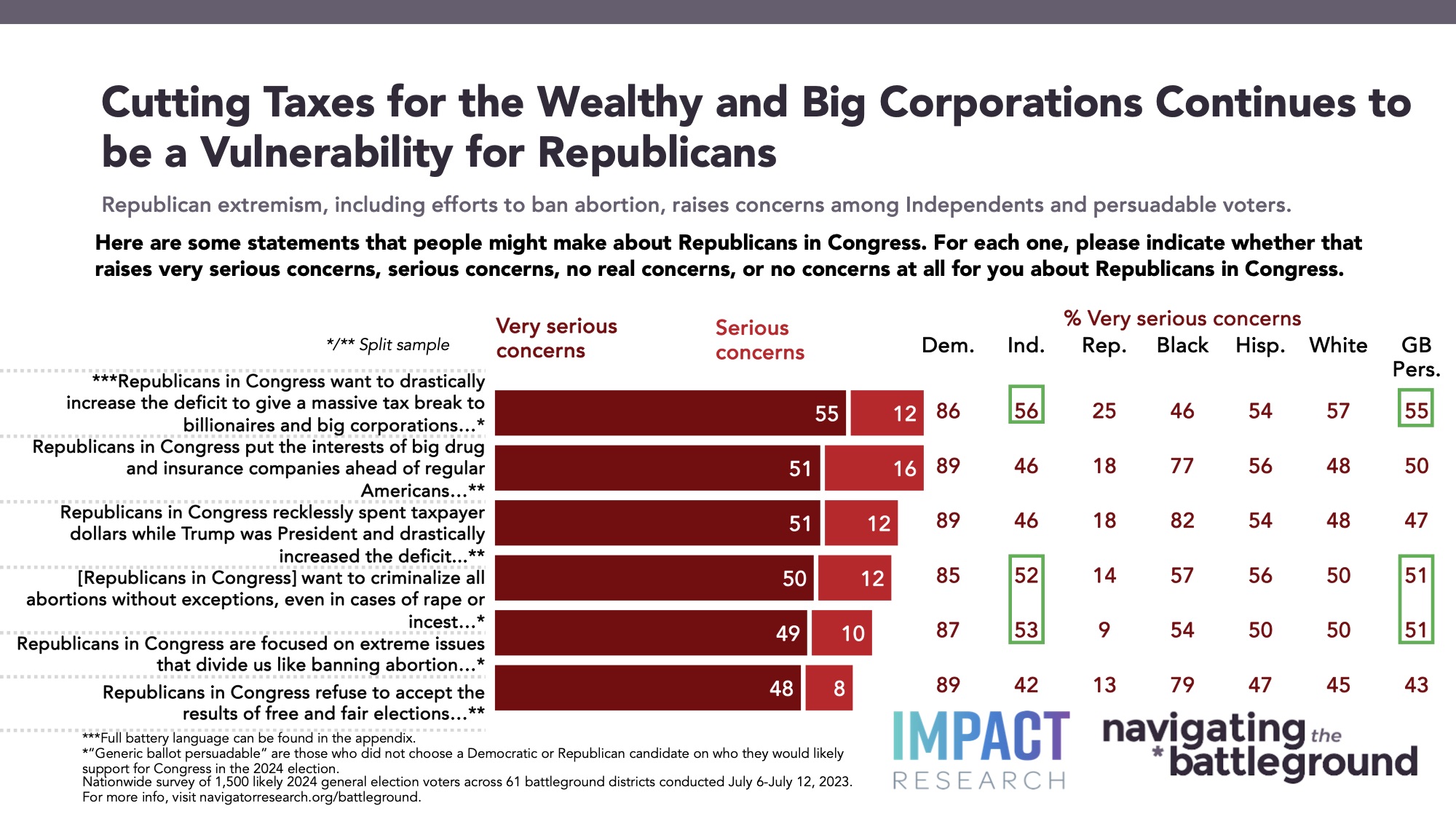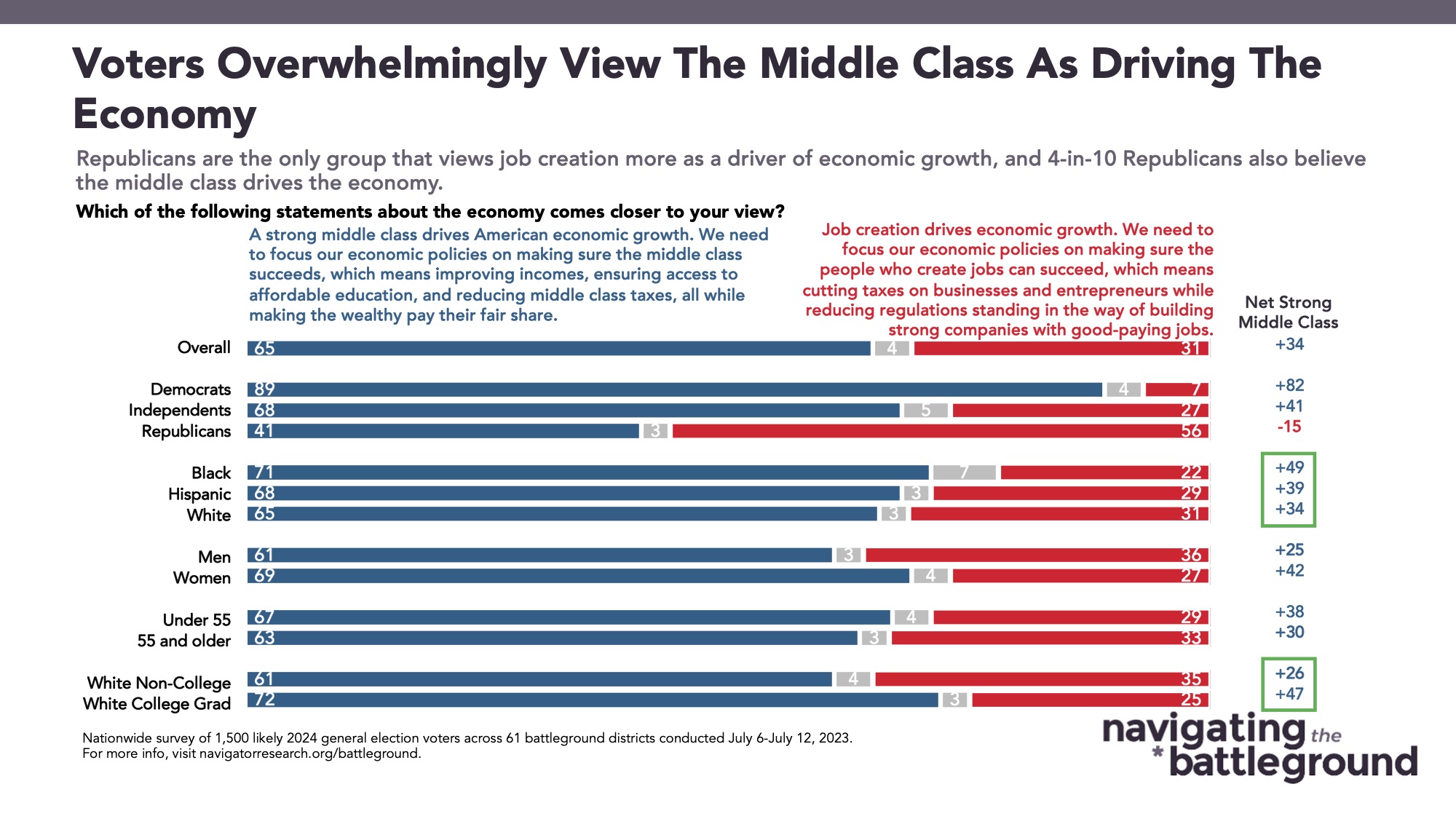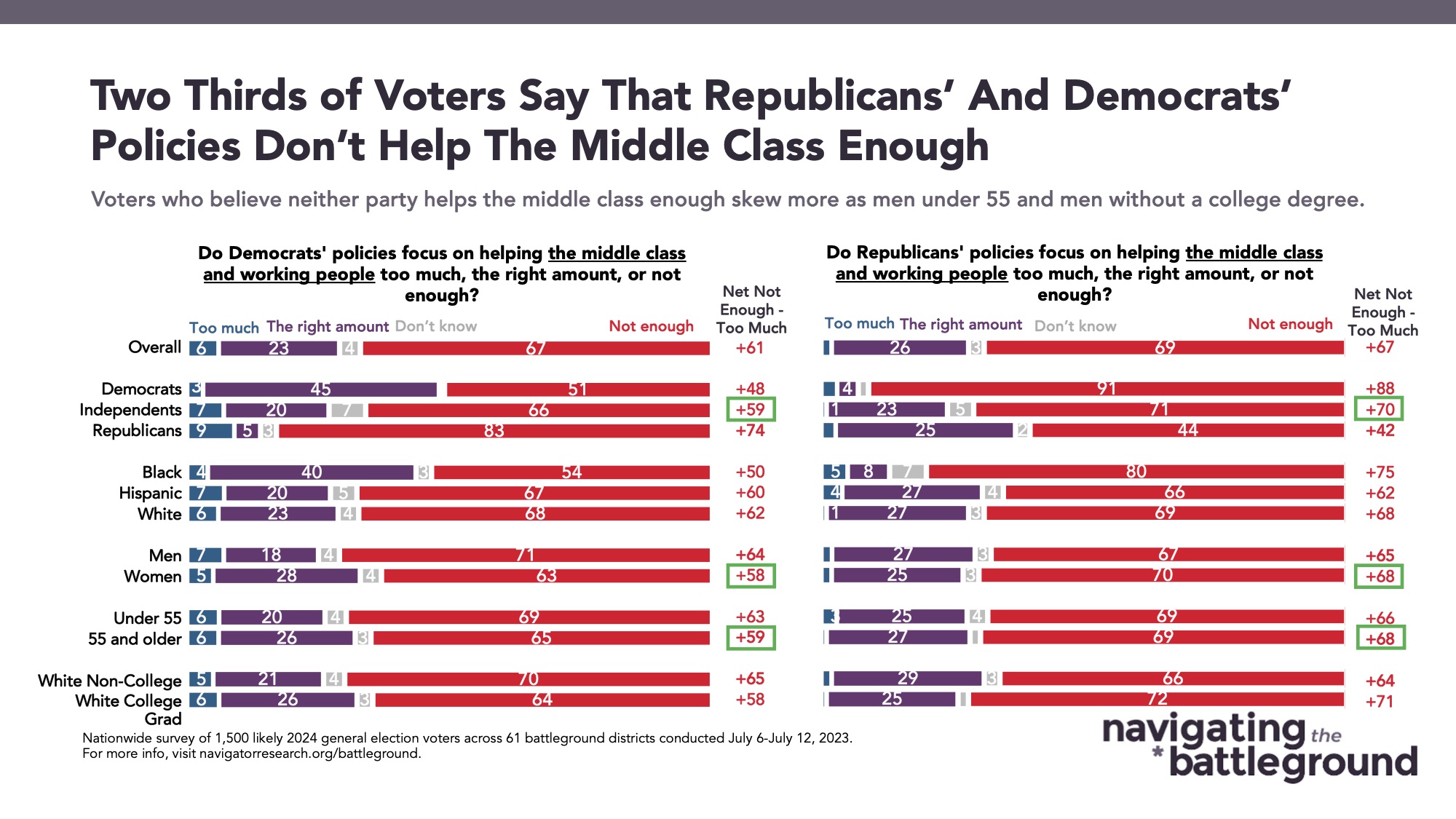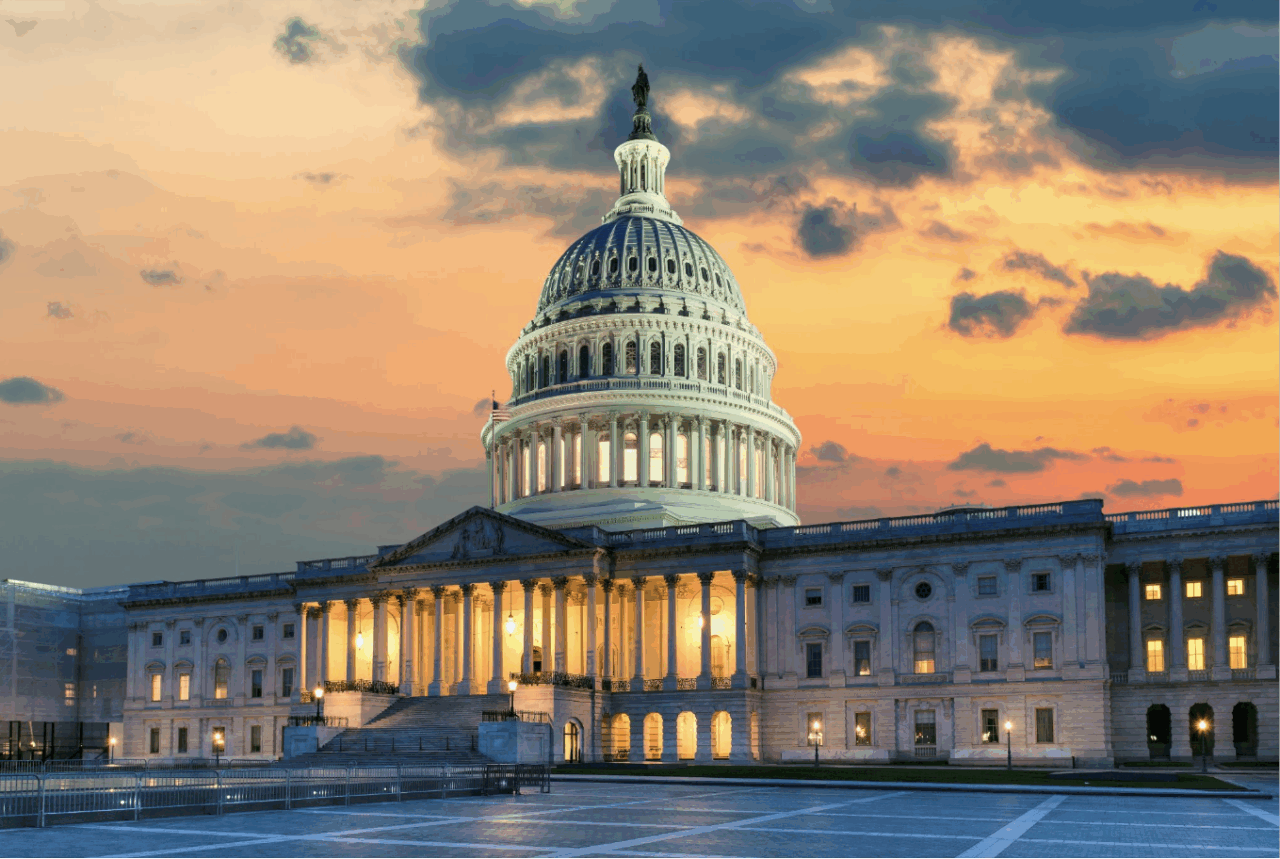Economic Branding In The Battleground
This Navigator Research report contains polling data on Americans’ latest perceptions of the economy, how party trust varies across a range of economic issues, and which policies constituents believe will result in economic growth.
Nearly three in four battleground constituents rate the economy negatively as inflation remains top of mind.
71 percent of constituents in battleground districts view the state of the economy as “poor” or “not so good,” down four points from April (75 percent). The share who view the economy as “good” or “excellent” is up five points from April (from 23 to 28 percent); with positive sentiment on the economy driven by Democrats (net +9; 54 percent positive – 45 percent negative).
- Inflation and the cost of living remain top of mind for battleground constituents as two in five say this issue should be a top priority for Congress (40 percent) including a majority of Republicans (53 percent), half of independents (50 percent), and one in four Democrats (25 percent).
- Negative sentiment on the economy in battleground districts is driven by Republicans, 94 percent of whom rate the economy negatively. Negative economic sentiment is also driven by white Americans who completed a high school education at most (86 percent) and blue collar workers (84 percent).
- Conversely, the most positive economic views are among white Democrats (net +24; 62 percent positive – 38 percent negative), nearly half of Black Americans (46 percent), and those with graduate level education or advanced degrees (46 percent).
Republican figures are widely viewed unfavorably by battleground constituents.
By a 12-point margin, a majority of battleground constituents view Republicans unfavorably (55 percent unfavorable – 43 percent favorable). This negative sentiment also extends to “MAGA Republicans in Congress” (net -14; 53 percent unfavorable – 39 percent favorable) and Donald Trump (net -13; 57 percent unfavorable – 43 percent favorable), who both see net negative favorability with even more intensity from battleground constituents: while Republicans in Congress receive 39 percent “very unfavorable” ratings, “MAGA Republicans in Congress” and Donald Trump receive 47 percent and 50 percent “very unfavorable” ratings, respectively.
Democratic incumbents are more favorable than Republican incumbents in the battleground.
Democratic incumbents in the battleground receive positive ratings overall at net +7 approval (39 percent approve – 32 percent disapprove). Conversely, Republican incumbents fare worse at net -2 approval ratings (35 percent approve – 37 percent disapprove).
While Republicans are broadly viewed unfavorably, more constituents trust Republicans to handle the economy, while a greater share trust in Democrats to focus on the right issues overall.
Republicans are trusted more by battleground constituents to handle the economy (44 percent Republican Party – 36 percent Democratic Party), but Democrats are more trusted on both “supporting the right policies in Congress” (41 percent Democratic Party – 37 percent Republican Party) and “looking out for people like me” (39 percent Democratic Party – 36 percent Republican Party).
- Black Americans overwhelmingly trust the Democratic Party more to handle economic issues (net +58; 68 percent Democratic Party – 10 percent Republican Party). Demographic groups who are more split on party trust for economic issues in the battleground include women (net +2; 40 percent Democratic Party – 38 percent Republican Party), college-educated voters (40 percent Democratic Party – 40 percent Republican Party), and those under the age of 35 (35 percent Democratic Party – 36 percent Republican Party).
- Battleground constituents are evenly split about who to blame for the national deficit: 45 percent believe that “Republican tax cuts for billionaires and corporations” has a bigger impact on increasing the national debt, while the same share believe that “Democratic spending on government programs, like food stamps, unemployment, and COVID relief” is more to blame for the deficit (46 percent).
Constituents believe Republicans are prioritizing the wealthy and non-economic issues over the middle class.
By a 16-point margin, battleground constituents believe Republicans have largely prioritized the wrong things since taking control of Congress (37 percent right priorities – 53 percent wrong priorities). This is largely driven by the belief that Republicans have focused more on non-economic issues since taking control of Congress (net -30; 29 percent focused on economic issues – 59 percent focused on non-economic issues).
- Battleground constituents believe Republican policies are too focused on helping the wealthy and corporations, with 60 percent of battleground constituents saying Republican policies help the wealthy and corporations too much. This mirrors the top concerns battleground constituents have about Republicans, including that “Republicans in Congress want to increase the deficit to give a massive tax break to billionaires and big corporations” (55 percent “very serious” concern), followed by “Republicans in Congress put the interests of big drug and insurance companies ahead of regular Americans” (51 percent “very serious” concern).
An overwhelming majority of battleground constituents say that growing the middle class will drive economic growth instead of trickle-down economics.
Two-thirds of those in the battleground agree with the progressive approach to economic policy that a stronger middle class will drive economic growth and that economic policies should focus on “improving incomes, ensuring access to affordable education, and reducing middle class taxes, all while making the wealthy pay their fair share” (65 percent). This includes two in three independents (net +42; 67 percent progressive approach – 25 percent conservative approach) and even 41 percent of Republicans. Less than one in three believe in the conservative trickle-down approach that job creation will drive economic growth and that Congress should focus on “cutting taxes on businesses and entrepreneurs while reducing regulations standing in the way of building strong companies with good-paying jobs” (31 percent).
About The Study
Impact Research conducted public opinion surveys among a sample of 1,500 likely 2024 general election voters from July 6-12, 2023. The survey was conducted by a mix of text-to-web (74 percent) and an opt-in, online panel (26 percent). Respondents were verified against a voter file and special care was taken to ensure the demographic composition of our sample matched that of the 61 congressional districts included in the sample across a variety of demographic variables. The margin of error for the full sample at the 95 percent level of confidence is +/- 2.5 percentage points. The margin for error for subgroups varies and is higher.

